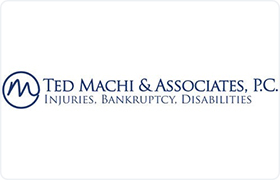Desoto Collection Lawyer, Texas
Sponsored Law Firm
-
 x
x

Click For More Info:
-
Machi & Associates, P.C.
1521 North Cooper Street Suite 550 Arlington, TX 76011» view mapAccident & Injury, Bankruptcy, Social Secuirty We Fight So You Don't Have To
Our professional team of attorneys and staff provide the experience and expertise needed to effectively handle your case.
800-804-0771
Michael Raymond Cramer
Business, Business Organization, Collection, Construction, Civil & Human Rights
Mr. Cramer grew up in the piney woods of Mt. Vernon, East Texas before moving to Mesquite, where he graduated from High School in 1986. Following high... (more)
Bill Venegoni
Age Discrimination, Americans with Disabilities Act , Mesothelioma, Collection
Status: In Good Standing
Diana S. Weitzel
Adoption, Alimony & Spousal Support, Child Support, Collection
Status: In Good Standing
FREE CONSULTATION
CONTACTPamela L. Wilder
Adoption, Alimony & Spousal Support, Child Support, Collection
Status: In Good Standing
FREE CONSULTATION
CONTACTChad L. Farrar
Transportation & Shipping, Family Law, Collection, Products Liability
Status: In Good Standing Licensed: 29 Years
Judith Knudsen
Employment, Business & Trade, Collection, Litigation
Status: In Good Standing Licensed: 24 Years
Rebecca Ann Cohenour
Corporate, Freedom of Information, Collection, Merger & Acquisition
Status: In Good Standing Licensed: 13 Years
Tom Clayton
Divorce & Family Law, Credit & Debt, Collection, Bankruptcy, Bankruptcy & Debt
Status: In Good Standing
 Ted Machi Arlington, TX
Ted Machi Arlington, TX Practice AreasExpertise
Practice AreasExpertise
